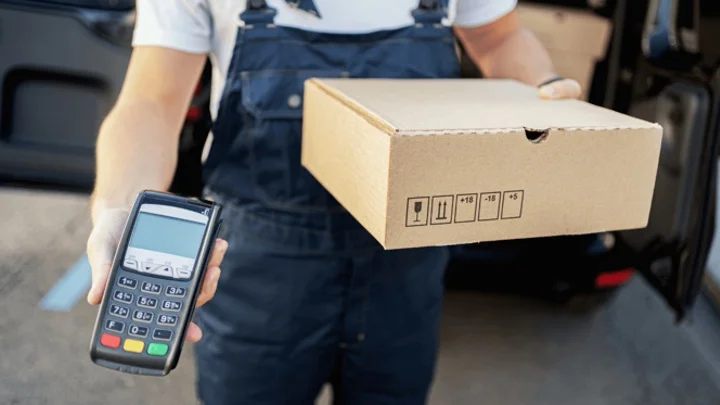Terms and conditions of sales, delivery, and payment

[et_pb_section fb_built=”1″ _builder_version=”4.16″ global_colors_info=”{}”][et_pb_row _builder_version=”4.16″ background_size=”initial” background_position=”top_left” background_repeat=”repeat” global_colors_info=”{}”][et_pb_column type=”4_4″ _builder_version=”4.16″ custom_padding=”|||” global_colors_info=”{}” custom_padding__hover=”|||”][et_pb_text _builder_version=”4.17.4″ header_2_text_color=”#E02B20″ header_2_font_size=”24px” header_3_text_color=”#E02B20″ header_3_font_size=”24px” header_4_text_color=”#E02B20″ header_4_font_size=”24px” background_size=”initial” background_position=”top_left” background_repeat=”repeat” hover_enabled=”0″ global_colors_info=”{}” sticky_enabled=”0″]
There are many Shipping Terms of delivery and payment, and there are Shipping Terms and conditions for sale. When the product is shipped or transferred from the country of origin to the country of the importer, but from the source’s store to the place of the importer, so you must be aware of all kinds of conditions, and this is not enough either, but you must know what your responsibilities are As an exporter in each of these Shipping Terms, so that you can negotiate properly and include the payments that you will pay in the quote submitted to the importer so that you do not discover that you paid the profit in shipping the product and you have nothing left, and in this article we will show you the Shipping Terms and conditions of sale, delivery and payment .
Shipping Terms Explained
Shipping Terms are a set of provisions recognized around the world, which outline the things to expect from each party in the sales process and contract negotiations.
In general, and in all international transactions, the costs of shipping can be paid from the shipper or the consignee
There are also many of those conditions that govern international trade, which we will learn about in some detail in the next section.
International Commercial Terms

Incoterms are a set of trade rules established by the International Chamber of Commerce used in international sales contracts. You can try e-commerce services at Diggipacks
International trade Shipping Terms are divided into four main categories: E – F – C – D, and the following are those categories, which we will discuss in detail later:
Class E – This contains only one trade term which is EXW
Class F (main carriage unpaid) – which contains three commercial terms for Shipping Terms :
- FCA
- FAS
- FOB
Class C – This contains four commercial terms:
- CPT
- CIP
- CFR
- CIF
Class D (Access) – which contains three commercial terms:
- DAP
- DPU
- DDP
The above four categories can be classified according to the mode of transport:
- Incoterms for any means of transport: EXW, FCA, CPT, CIP, DPU, DAP and DDP;
- Incoterms only for shipping and inland waterways: FAS, FOB, CFR and CIF.
Incoterms – what each term means
Incoterms are the abbreviations that represent shipping terms during international trade, which were created by the International Chamber of Commerce for overseas sales and export operations.
And the following is the interpretation of those abbreviations:
EXW:
In this condition, the exporter commits to the contract, by delivering the goods to a point within the agreed-upon place, according to the type of goods ordered and the place of delivery,
Under this condition, the buyer shall bear the responsibility of the carriers sent by him to his warehouse or factory. In this method of delivery, the importer bears the duties, licenses, taxes, all damages and all expenses associated with receiving the goods from the source location.
FAS:
In this condition, the exporter is bound by the concluded contract when he delivers the goods according to the Shipping Terms of the contract to the berth of the sea loading port next to the ship or the Shipping Terms line named in the contract, with customs clearance to be the goods ready for export.
Thus, the exporter bears the licensing fees and taxes in his country, and also bears the fees and risks of the loading process from his factory to the beginning of the intended journey in the contract.
The responsibilities of the importer begin from loading the goods on the ship until it reaches the desired destination, and he bears all costs, losses, defects and risks of damage.
FOB:
During this condition, the exporter’s responsibility for the risk of loss or damage to the goods ends when the goods pass the ship’s edge at the port of loading, and the exporter pays the fees for loading the goods until they enter the ship’s land.
From this point, the importer is responsible for the goods and all costs, losses and damages that may occur during the transportation process.
CFR:
It is a condition that indicates the exporter’s obligation to be responsible for the risk of loss until the ship passes the edge of the ship at the port of loading as in the FOB condition and the exporter pays the Freight Shipping charges Pre Carriage & Main Carriage until the ship reaches the port of discharge agreed upon in the contract of sale.
The exporter is not responsible for unloading the goods from the ship, and the responsibility for customs duties is borne by the exporter in this way, the CFR clause is used for sea carriage only.
FCA:
In this condition, the exporter fulfills the obligation agreed upon in the contract by delivering the goods to the carrier (to be determined by the buyer) at the place or point specified in the contract, and the goods are ready for export.
This clause is used by all modes of transport, such as air transport, rail transport, road transport and various modes of transport.
CPT:
The exporter bears the costs of the cargo to the port point mentioned in the contract, but the risks are transferred to the buyer once the goods are delivered to the first carrier, which is chosen by the exporter.
Carrier refers to any person who undertakes to carry goods by rail, land, sea, air, inland waters or various modes of transport within the framework of a contract of carriage.
CIP:
In this condition, the goods are delivered to the transport company chosen by the exporter, and the exporter must also pay the transportation costs to the specified point or destination, and therefore the importer bears the risks and other costs that may arise after the goods are delivered at the specified destination.
In this condition, the exporter must also provide insurance against the risk of loss, shortage and damage to the goods during the importer’s journey after receiving the goods.
DAF:
In this condition, the seller delivers the goods to the importer through the means of transport agreed upon within the contract, to the designated point or place before the customs area, the borders of the country of destination, without unloading them from the means of transport, where the goods are clear for export but not for import.
DEQ:
This condition means that the exporter satisfies the delivery in accordance with the contract, when he places the goods at the disposal of the importer, unfavorable for import, on the quay at the appointed port of destination.
The exporter must bear all fees and expenses resulting from the delivery of the goods to the port concerned in the contract, and also from unloading the goods to the berth.
DDU:
This condition means that the exporter must deliver the goods to the importer unpurified for importation and unloaded from the means of transport arriving at the appointed place of destination.
The seller shall bear the expenses and risks arising from the delivery of the goods to the appointed place, with the exception of the fees for delivering the goods to the country of destination.
DDP:
In this condition, the exporter delivers the goods to the buyer, cleared for import, without unloading from the means of transport arriving at the specified destination or point.
The exporter must bear all expenses and risks resulting from the delivery of goods to the mentioned place.
Rules for any mode of transport
There are a number of rules for any means of transport, which are the same as the rules of international trade, where:
- In EXW the seller fulfills his obligations by providing the goods to the buyer for pick-up at his premises or other specified place
- In FCA, the exported goods are delivered to the carrier specified by the buyer or another party authorized to receive the goods at the seller’s premises or at another specified location.
- At CPT, the seller will clear the goods for falsification and then deliver them to the carrier or other person specified by the seller, and the seller is responsible for the transportation costs associated with delivering the goods to the specified destination but is not responsible for purchasing insurance
- In the case of DAT, the seller clears the goods for export and bears all risks and costs associated with the delivery and unloading of the goods at the terminal at the specified port or place of destination, while the remaining costs will be borne by the buyer.
- At DAP, the seller clears all the goods for export to the place of destination, but does not bear the responsibility and costs of unloading, and the buyer undertakes the rest of the other tasks.
you may like:
Incoterms – what you need to know

We explained and clarified all incoterms for Shipping Terms in the previous part, but there are a number of things that you also need to know about incoterms for Shipping Terms other than their own terms, as:
The rules for incoterms for Shipping Terms are renewed every decade and were first developed in 1936 by the International Chamber of Commerce.
These rules are the solution to all international trade problems, which lay the foundations for transport agreements in more than one way.
Therefore incoterms for Shipping Terms are used as the basis for agreeing all contractual obligations of trade, including export, import and transit of goods.
We can say that incoterms for Shipping Terms allocate the cost by defining who will bear the costs, it also divides the obligations between the parties, as well as clarifying which party will cover the potential risks.
[/et_pb_text][/et_pb_column][/et_pb_row][/et_pb_section]















